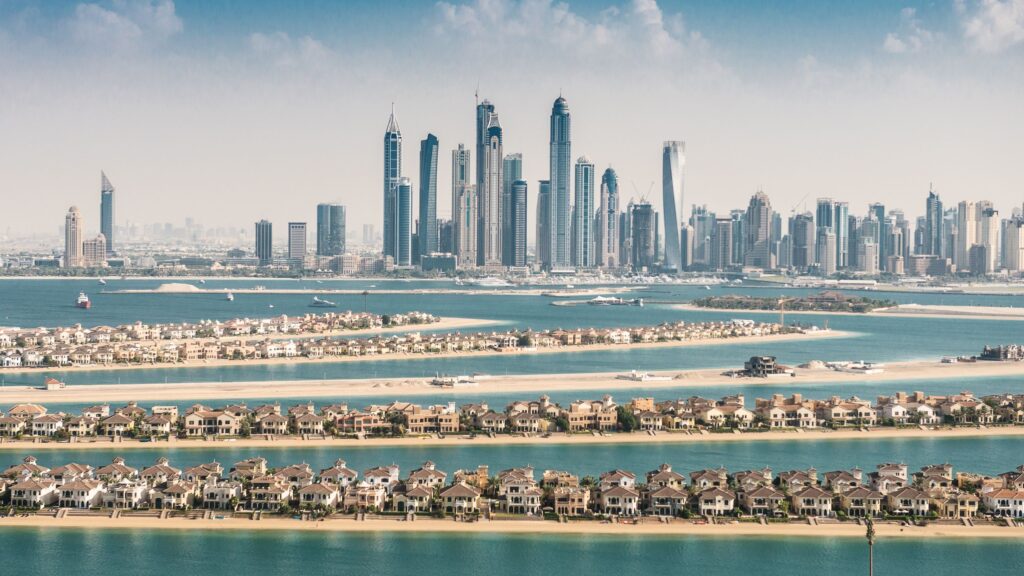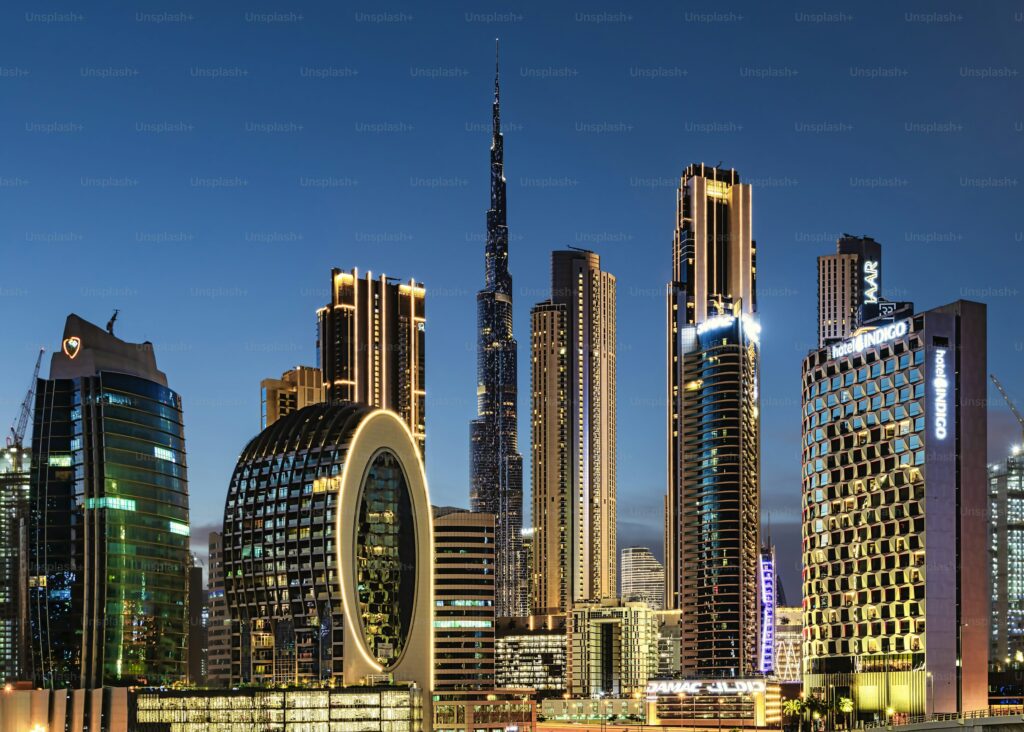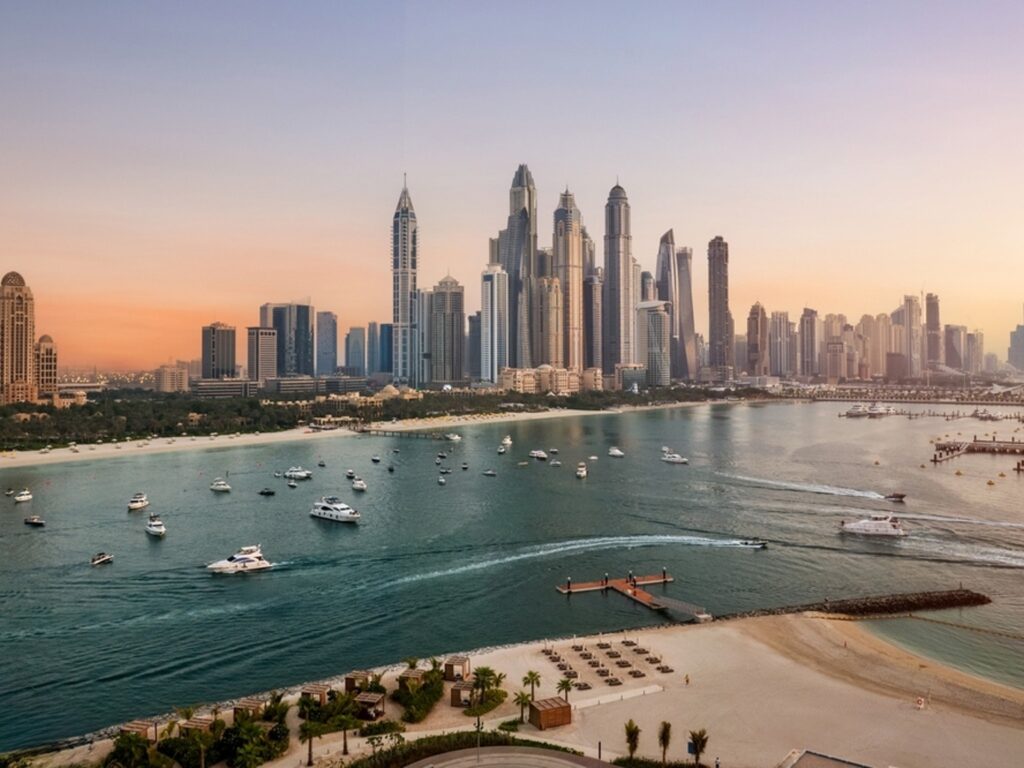Dubai has become a magnet for entrepreneurs and investors from around the world — and much of that attraction comes from the UAE’s powerful Free Zone system.
Setting up a business in a Dubai Free Zone offers huge advantages: 100% foreign ownership, tax exemptions, fast company registration, world-class infrastructure, and a gateway to the global market. But like any major business decision, it’s essential to understand the process, steps, and strategies to ensure success.
If you’re thinking of starting your business in a Dubai Free Zone, this comprehensive guide is exactly what you need.
Let’s dive deep.

What is a Dubai Free Zone?
A Free Zone (sometimes called a Free Trade Zone) is a special economic area where companies can operate with a wide range of benefits:
- 100% foreign ownership (no need for a local sponsor)
- Zero personal income tax
- Zero corporate tax (subject to certain thresholds under UAE corporate tax rules from 2023)
- Full repatriation of capital and profits
- No import/export duties within the Free Zone
- Simplified setup processes
- Access to modern office spaces, warehouses, and logistics facilities
Dubai alone has over 30+ Free Zones, each designed to support specific industries — from tech startups and finance firms to logistics companies and creative agencies.
Why Set Up in a Dubai Free Zone?
Before we jump into the how, let’s quickly answer the why.
- Ownership Control
You retain full ownership without the need for a UAE national partner. - Speed and Ease
Company formation can be completed in as little as 1 to 5 days. - Sector-Specific Benefits
Certain Free Zones specialize in industries like IT, media, healthcare, or logistics, offering tailored facilities and support. - International Trade Access
Being in Dubai connects you to markets across the Middle East, Africa, Asia, and Europe. - Tax Optimization
Save significantly on taxes and reinvest profits back into your business.

Step-by-Step Guide to Starting a Business in a Dubai Free Zone
1. Define Your Business Activity
Before anything else, you must decide on the business activity you intend to carry out.
Every Free Zone has an approved list of activities, including:
- Commercial/Trading (Import, Export, Distribution)
- Consulting
- Media Production
- IT Services
- E-commerce
- Education and Training
- Logistics
- Manufacturing
✅ Tip: Choosing the right activity is crucial for license approval and future banking needs.
2. Select the Right Free Zone
Dubai offers a variety of Free Zones. Some of the most popular include:
- Dubai Multi Commodities Centre (DMCC) – Best for trading and commodities
- Dubai Internet City (DIC) – Ideal for tech businesses
- Dubai Media City (DMC) – For media, marketing, and content businesses
- Dubai Airport Free Zone (DAFZA) – Great for logistics and aviation-related businesses
- IFZA Dubai – Cost-effective for startups
- Dubai South Free Zone – Perfect for logistics and aviation
✅ Tip: Pick a Free Zone that matches your industry and offers the right visa quotas, office space options, and networking opportunities.
3. Choose Your Company Structure
You’ll usually have two main options:
- FZ-LLC (Free Zone Limited Liability Company): A separate legal entity, great for small to large businesses.
- Branch Office: An extension of your existing business from another country or mainland UAE.
✅ Tip: FZ-LLC is most common for new entrepreneurs.
4. Finalize Your Trade Name
Your business needs a trade name that follows the UAE naming conventions:
- No offensive language
- Must be unique (check with the Free Zone authority)
- Should reflect your business activity in some cases
✅ Tip: Reserve your name early to avoid delays.
5. Apply for a Business License
Once you have your trade name and business activity, you can apply for a license. Common license types:
- Commercial License – For buying and selling goods
- Service License – For service-based companies like consulting
- Industrial License – For manufacturing companies
- E-commerce License – For online businesses
- General Trading License – For companies selling a broad range of products
✅ Tip: Some Free Zones allow combining multiple activities under one license.
6. Choose Office Space
Depending on your needs, you can choose:
- Flexi-desk (shared workspace)
- Executive offices (private office)
- Warehouses (for logistics or manufacturing businesses)
Some Free Zones even allow virtual offices if you don’t need a physical workspace immediately.
✅ Tip: Start with a flexi-desk to save costs if your business doesn’t require a full office.
7. Submit Documents
You’ll typically need:
- Passport copies of shareholders and directors
- Passport-sized photos
- Business plan (sometimes optional)
- Proof of address
- No Objection Certificate (NOC) if you’re under a UAE employment visa (optional)
- Application forms provided by the Free Zone
✅ Tip: Some Free Zones require less documentation to speed up the process.
8. Make the Payment
Free Zones offer business setup packages depending on:
- License type
- Number of visas
- Office size
- Duration (1-year, 2-year, 3-year licenses)
Starting costs:
Entry-level packages can start from AED 5,750 (for zero visa, flexi-desk) to AED 30,000+ (for multiple visas and larger offices).
✅ Tip: Some Free Zones offer multi-year discounts if you pay for 2–3 years upfront.
9. Receive Your License and Company Documents
After approval and payment, you’ll receive:
- Business License
- Certificate of Incorporation
- Share Certificate
- Lease Agreement for Office Space
- Memorandum & Articles of Association (MOA/AOA)
✅ Tip: Double-check all details to avoid errors later.
10. Apply for Residence Visas
You and your employees can now apply for UAE residence visas.
Steps typically include:
- Entry Permit
- Medical Test
- Emirates ID Application
- Visa Stamping on Passport
✅ Tip: Most Free Zones allow 1–6 visas depending on office space size.
11. Open a Corporate Bank Account
Once your company and visa are set up, you can apply for a corporate bank account.
Popular banks in the UAE include:
- Emirates NBD
- Mashreq Bank
- ADCB
- FAB
- RAKBank
- WIO Bank (for startups and digital businesses)
✅ Tip: Prepare proper KYC documents and a professional business plan if needed.

Common Mistakes to Avoid When Setting Up a Free Zone Company
❌ Choosing the wrong Free Zone (causing operational challenges later)
❌ Picking the wrong business activity (leading to issues with banks or visas)
❌ Rushing documentation and missing important steps
❌ Not planning visa quotas in advance
❌ Opening a bank account without understanding the compliance requirements
✅ Solution: Always work with a trusted consultant or agency who knows the Dubai Free Zone landscape inside out!
Cost Breakdown: What You Should Expect
| Service | Estimated Cost |
|---|---|
| Company Registration | AED 5,750 – AED 30,000+ |
| Visa Costs (per visa) | AED 3,500 – AED 7,000 |
| Office Space (annual) | AED 7,000 – AED 20,000+ |
| Corporate Bank Account | Varies |
| Health Insurance (mandatory) | AED 1,000 – AED 3,000 |
Total: Expect a range of AED 10,000 to AED 50,000 depending on your specific needs.
Best Free Zones for Startups in 2025
Here’s our updated list of best Free Zones for entrepreneurs in 2025:
- IFZA Dubai – Best value for money
- DMCC – Best for trade and commodities
- Dubai Silicon Oasis (DSO) – Best for tech startups
- Dubai Media City (DMC) – Best for creative industries
- Dubai Airport Free Zone (DAFZA) – Best for logistics and aviation
Why Entrepreneurs Love Dubai Free Zones
Dubai isn’t just a place — it’s a platform. Setting up a business here means:
- Operating in a politically stable and economically growing country
- Enjoying world-class infrastructure
- Access to global markets
- Networking with like-minded entrepreneurs at world-class events
- Having the freedom to grow without heavy bureaucracy
And best of all — you own your success 100%. No compromises.

Final Thoughts: Is Setting Up in a Dubai Free Zone Right for You?
If you want full ownership, fast setup, tax benefits, and access to a booming economy — setting up in a Dubai Free Zone is an incredible opportunity.
But success depends on doing it right from Day 1.
Whether you’re launching a startup, opening a branch office, or moving your existing company offshore, DubaiFreezoneBusiness.com is here to guide you every step of the way.

